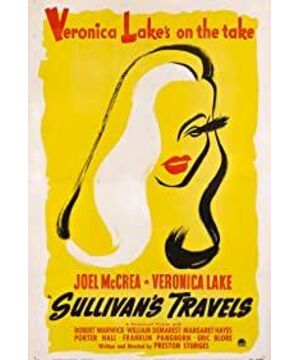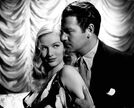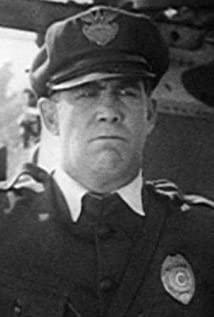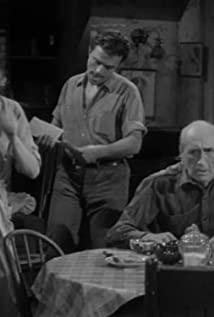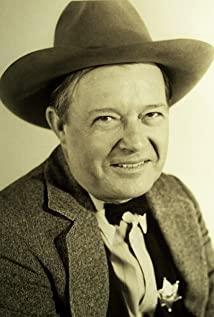1. Regarding "Sullivan's Travels",
a comedy director with a wealth of money, one day suddenly decided not to make a comedy, and wanted to make a reflection The "Great Realism" film of the lives of poor people. In order to experience life, he put on a tattered shirt with a dime in his pocket and sneaked onto a train carrying straw. There were two stray unemployed workers on the train. After greeting him, he asked others: "You What do you think of the working class in the United States?" The two behind looked at him like monsters, and would rather climb on the roof than in the same compartment with him.
(When I see this, I think of the so-called New Left youths all over the world-most of them eat spicy food and have never tasted what it is like to go hungry. Once at a party, a French youth enthusiastically introduced me to the famous Proletarian anarchist Guy Debord, one of the most famous theories of this man is to defend the interests of workers 100%, everyone stays at home and does not go to work.)
Later, the director was mistakenly thrown in as a tramp. Prison was originally to experience life. I didn’t expect to have to sit in the classroom for six years when making fakes come true. After being subjected to inhuman torture and humiliation, the prisoners finally got a chance to watch a movie. Mickey Mouse and Donald Duck were shown on the screen, the director. while bathing manna from heaven as a general laugh, while pinch the person next to ask: "what I laughed I laughed it how could it be me how to laugh Donald Duck????"
finally being from prison Rescued and restored his identity as a director, the producer prepared the funds for the filming of "Great Realism Movies". She shook her head and said, let’s make comedies. Working people really don’t like to watch realism. Realistic enough.
(Think of the many Chinese films that wandered abroad with realism and humanistic care. They are really not for working people, but for the leisure class of international elites.)
2. Regarding "realism" ("realism"?):
The issue of origin is very broad, beyond the scope of the movie. It's worth writing.
First of all, my starting point for discussing this topic is to agree with the Marxist concept of class division, although it may not agree with its standard of class division.
Then there is the definition of "realism": in fact, the "realism" we often talk about is equivalent to "critical realism" (I tried hard to think whether there is "praise realism" in contemporary times? I didn't expect it. It seems like in the 19th century. A painter had this trend, and it was fleeting.) In my impression, “realism” is more like a continuation of “realism”: after thousands of times of realism, people finally discovered that it may not be “realistic” ", the critical color is too strong to affect its objectivity, so we have a revisionism-like attitude, and re-examine the questionable "truth" through integration and filtering methods, and personal views and goals. The more hidden sex (note that it is hidden rather than deleted) is behind reality. This content will be explained in detail later.
Looking back at how realism was born. Has anyone talked about realism in the 18th century? As far as I know, it doesn't seem to be. Bazin regards the Renaissance as the origin of realism. I think it is related but far-fetched, because the "realism" discussed at this time comes from the understanding of the value of human beings, which is different from the values previously ruled by religion and theology. . It is one of the broad sources of "realism" recognized later, but there are still essential differences. After the mid-nineteenth century, realism began to appear in French, Russian and American literary works. There were a few painters, such as Courbet in France, and Repin in Russia, as well as some famous realist paintings. work.
The background of the times here is particularly important. The 19th century was an era when capitalism was madly accumulating capital. The establishment of social contracts and public order began. Chinese society), the old social order is broken, and the establishment of a new social order will inevitably lead to the intensification of social contradictions and the emergence of class antagonism. Reading Dickens’ novels can roughly understand the cruel situation of society at that time: due to the developed heavy industry , London has become a heavily air-polluted city ("Fog City"). Child laborers who died of pneumonia were killed by the roadside, and a large number of unemployed workers who were disabled due to work-related accidents wandered on the streets. The sharp social contradictions gave birth to socialism and communism and other leftist trends of thought, and the original rational motives of all these human beings were the original but strong "critical realism" emotions. A particularly important point here is that "realism" or "critical realism" can never be produced without sharp social antagonisms and class differences. In other words, "realism" in the field of literary and artistic creation itself is unrealistic. , It exists in the reality of inequality with human society and the resentment and resistance of being deprived of benefits and rights. More importantly, a diversified society and a society full of conflicts and contradictions are the hotbed and encouragement mechanism of "realism". In a society where social contradictions are relatively relaxed, the repercussions of "realism" will be significantly reduced. In a centralized society, after class differences are eliminated or reduced to the lowest point, "realism" will naturally disappear. Because there is no contrast and difference, "realism" has no meaning for creators and audiences. . In fact, looking back at our country's literary and artistic creation since 1911, it is clear at a glance.
3. Regarding "realism" ("realism"?): Judging that the
following is close to the subject.
In the nineteenth century, British philosopher and economist Joseph Milley believed that people's behavior, desires, and suffering are all determined in advance by their economic status. (It takes some courage to agree with this sentence, but unfortunately, in most cases, economists’ judgments on sociology are always cruel and correct.) A particularly interesting phenomenon is the , To Castro Guevara in Cuba, even Ho Chi Minh in Vietnam, and then to the "horrible" Khmer Rouge Pol Pot and Qiao Samphan. These famous people are in the common "critical realism" mood. No one who has grown up to guide the theoretical direction of the world leftist movement is not from a well-off middle-class businessman, scholar or even a rich family of big bourgeoisie. Jos Milly’s theory is actually tested in a wonderful way, that is, people’s behaviors and desires are 100% related to their economic status, but the content does not conform to their economic status. This is a typical example. People in the city have to rush out, and people outside the city have to rush in! This is one of human nature.
The nihility of "realism" itself is precisely at the center of this paradox vortex. In my personal opinion, the subjects of the working class do not care about the living conditions of other members of the class under the premise that their basic rights and interests are protected (even in the turbulent 19th century, none of them can afford to guide And the responsibility of defending the interests of the class, and this task is all entrusted to the Marx and Engels and socialists who came from the opposing class, not to mention the relatively peaceful social order and the state of affluent life). They are interested in two things. To put it simply, they are better than their own and worse than their own. Paying attention to what is better than themselves is their desires, desires and expectations in life as human individuals. Paying attention to what is worse than themselves is to satisfy their vanity and superiority. This is the most basic and irreplaceable intuitive response of people to the material society.
The status of "realism" is embarrassing. As mentioned above, the source of its birth and the subject of the content it depicts (that is, the proletariat) itself is not interested in it. In fact, it is produced by a group of "rushing in from outside the city, full of critical reality consciousness and compassion." "People" are made out of one hand. These people are self-designated as agents of one class to express opinions and opinions to another class. I use a set of famous Japanese cartoon names and I call them "delusional agents." And do they really understand what they say or what they want to say? This is a huge question mark! Regardless of the details, from a big point of view, the atrophy of communism in Europe is inseparable from the attempt of this very vain "delusional agent". In the 1950s and 1960s, many left-wing artists living in Europe where social order was gradually stabilized and economic life was becoming more prosperous, especially film directors from Italy and France, were all tortured by this "delusional agent", and they could no longer find it at all. That traditional "realism" came to an end.
This is only the first level of this question, and there is another level: how is "realism" created? Who is their audience?
There is another very important undefinable thing here, which is what is "reality"? A small group of people or a specific group of people can call the things they see or even the values they agree with as reality, but when this review goal is expanded to the whole society and the whole world, what right do they have to emphasize and recognize? Their own ideas are reality, can they represent another group of people or the vast majority of people, especially when they are not even from this group of people? When Tolstoy wrote the ending of "Anna Karenina", he wandered for a long time between two endings with different destiny colors. In the end, he himself admitted that the final ending was "unrealistic". Not in line with the reality of Russian society, but he can't help being influenced by his outlook on life and religious beliefs to change the fate of the characters. Tolstoy, a great writer who writes with an unprecedented realism attitude, still cannot control his own judgment and desire to distort reality, so how many "realistic" creators can get rid of the influence of personal emotions, family backgrounds, and beliefs and values , To examine the world in an introspective, rational and objective way without personal subjective conjecture and imagination? How much value does "realism", which cannot get rid of this Achilles heel, really have in terms of "reality"?
A particularly obvious example in the film industry is the Italian neo-realism, whose true peak period quickly fell apart in less than ten years. Pasolini, Visconti, Antonioni and even Desica who came out of this movement no longer "new reality" and focus on personal experience and expression of values. One of the important reasons for this is "no "The rice is in the pot", the changes in the social environment and the changes in social reality, and they neither come from nor really live in the "reality" they describe, so that the new realism is based on the "reality" based on their own values. "I can't find a support point. When many people have to start to "reality" for "reality", discerning people find that they are beginning to distort "reality" and serve their stubborn values. Once this critical point is crossed, They are reduced to propaganda or self-promotion machines.
There may be the emergence of "realism", it may cleverly avoid some of the surface weaknesses of "realism", it no longer expresses clear values straightforwardly, or it emphasizes that the creators themselves start to see "Reality" seems objective, but it still can’t solve the basic contradiction: since I "write" with my own pen, I can’t confirm the reality of what I "write", so what I write has to be expressed The realistic and objective meaning of will be marked with a question mark!
Then there is the audience. There is a particularly interesting example in the "History of Chinese Film Ideology". In the 1950s, a rural screening team took "White Haired Girl" to the gully. After watching it, the masses responded, "It's good, but just I don’t understand it.” The movie player is blinded, and it’s about your business. Why don’t you understand it if you want to stand up for you? The same movie was shown in Japan, and it is said that it set a record for the number of people watched by Japanese audiences that year. But soon after changing to Huangmei Opera "The Match of the Immortal", watching it in the same place received a warm welcome, the venues were full, and everyone could understand it without explanation.
There are many reasons for "not understanding "White Haired Girl"", but I think one of the most important is that as the most ordinary Chinese rural working class at the time, before they fully understood and understood some conventional film expression methods established by conventions, Before they are fully educated and guided by the propaganda machine, they cannot understand the meaning of the "realistic elements" contained therein. Although they dress up similarly to them, they are actually saturated with values and ideology. Expressions cannot produce a sense of identity. And "The Goddess" goes beyond their lives and conforms to their simple wishes and logical thinking, which is exactly what they want to see. The most recent example of this should be "The Good Man in Three Gorges". It seems that the domestic premiere was held in a small town in the Three Gorges. I read a report that all the folks who watched it were confused and left with confusion. . The same film received a super-warm welcome in Europe, and was considered to reflect the "reality" of contemporary China. What I think is particularly interesting here is that this "reality" has not been understood and recognized by people who really live in this "reality". The voice of its identification with "Chinese reality" is from a stranger 8,000 kilometers away. From the kingdom. I wonder, is it really "others know who I am better than myself"? Are they talking about "me" or "me"? Or did they borrow the "me" face and clothes and wear them to tell them their own affairs?
Who on earth appreciates these "realism"? To put it bluntly, the so-called "realism" is precisely the product of the self-entertainment of the elite intellectual class and the middle class. They contributed a small amount of power to the promotion and improvement of the capitalist system (seemingly absurd but actually so), and then became cultural consumer goods when the leisure class tried to think seriously after dinner. In the 21st century, the Western middle class, which has the right to speak, is a condiment that satisfies their vanity and curiosity mentality. Especially when art films are fully marketized and commercialized, this spiritual demand from the audience is immediately transformed into market demand (the operating mode that capitalism cannot get rid of), making itself the "reality of rushing in from outside the city". The creators of “ism” actively or forced to distort the “reality” have no bottom line and cannot be controlled like a wild horse. A particularly typical example is the numerous seemingly "realistic" documentaries that can be seen on the French ARTE TV station all day. "Realism" is completely reduced to a seemingly rough but exquisite and skillful furnishings, and its meaning is limited to those who consume it.
In conclusion, "realism" arises from the contradictions and oppositions of the social class, but it is the product of the thinking mode of "siege" and "delusion agency", and it is manipulated by the class of creators, economic status and the values derived from it. There is no lack of sincerity but it is difficult to guarantee loyalty. In contemporary society, due to its own congenital defects and limitations of means, methods, and expression ideas, it will inevitably deviate from the content it wants to describe in spirit and substance and become a conversational resource for spectators.
Finally, back to the "Sullivan's Travel" that caused this topic. The interesting part of this movie is that it describes the good wishes of the creator of "realism" and the "realism" he wants to describe in a popular, comic and bold line. The huge gap between. But I don’t agree with the conclusion drawn at the end of the film. I still think that there are actually many ways to choose between "realism" and "entertainment".
4. Regarding "realism" ("realism"?): "Realism" and "realism"
must be talked about Bazin, because in fact his theory dominated the post-war intellectuals' macro understanding of film. Bazin named his famous theory collection "What is a movie?" After reading the whole book, I don't deny that it contains many guiding and defining important contents, and many important concepts that were first put forward. But most fundamentally, I just think that the way he raised this question is reversed. He still subconsciously equates film with other forms of artistic expression. Film is still a tool for symbol and meaning expression, only in terms of degree and ability. , He is different from André Malraux and put the film above the literary drama. Because of this, he strongly opposes Eisenstein, strongly opposes any way that can disrupt meaning and symbolic expression, and pursues an arbitrary, simple and direct way of expressing "truth" and "reality". In essence, he still believes that film is an extension of the expression of literary meaning, which puts a particularly small and outdated hat on the huge body with unlimited possibilities.
In fact, in my personal fundamental view, each of us is a movie, and everyone is a camera. The movie itself is a carrier with no additional meaning and its function and form infinitely changing. The question we need to ask is not The question "What is a film?" from the outside inward is a question "What is the world?" When we ask "what is a movie", we already have full grasp and certainty about the world in which we live, and we must include the movie as a matter of what we already know (a typical Kantian transcendental question), and the facts We don’t know what the world is, we don’t even understand all of human beings. And suppose that the film is just such a way and means that can pass through the envelopment of material, science and reason, completely get rid of the shackles of words and symbolic representations, and get a glimpse of those perceptions, intuitions, powers and emotions that we can never describe with meaning. This method communicates and infects the spiritual world of different individuals. With such a macro view, I think a lot of arguments about the film itself and which hat to put on it have become meaningless. What we have to do is to understand its characteristics, and then use it to observe, perceive and describe the world in the eyes of individuals. Instead, the movies produced in this way may have unprecedented commonality and can impress and infect other people in unexpected ways.
I wonder if it's too utopian? But from my viewing experience and limited practical experience, I do feel its particularity and its powerful unprecedented ability to show, and many things are indeed perceived but not communicated in the usual way. This also makes me bold to make this judgment, which comes from personal personal feelings and experiences.
Bazin and Jean Rouch later initiated and promoted a movement called CINEMA DE VERITE, called "Real Movies", which actually has the meaning of "realism", which means a bit like "deconstructivism" and reorganization of "structuralism". , Throwing away the outer shell of "realism" that began to be made up, and starting a new one to reorganize its spiritual essence and then "reality". The main filmings here are documentaries, and the attitude was relatively radical at first, and they rushed to the streets to randomly ask questions or something. , But later on, many of them took the documentary as a feature film, and asked the person to be photographed to pose, back to the dialogue and so on. I think this is actually a complete departure from the principle of realism. The characters are real. Yes, but the behavior is all false. Repeated the mistakes of "new realism".
What is particularly interesting is that in almost the same era, China also had such a trend, even more exaggerated, to make a film called "documentary art", which is said to have been named by Premier Zhou. There is a particularly famous film called "Huang Baomei", which was directed by Xie Jin. It was to find a real model worker named Huang Baomei in a textile factory in Shanghai. She wrote a script based on her deeds and asked her to act as herself. They are all real workers, repeating what they have said and done in the past, but they used standard feature film shooting methods, and even the positions of the characters were marked on the ground with chalk. This absurdity lies in the fact that it mixes real characters with out-of-the-art virtual behaviors and becomes a freak. This movie must be very interesting, but now I don’t know where I can see it.
What is worth mentioning in this movement is Frederick Wiseman, a great documentary director in the United States. His principle is that there will be no interviews, no music, no traces of the filmmakers, no commentary, no questions. Do not instruct the person being filmed, and do not do anything that interferes with the behavior of the person being filmed. He made more than a dozen powerful documentaries in the 1960s and 1970s, many of which made me stunned. He should be the most loyal executor of the entire "real film" movement worldwide. However, he himself does not seem to admit that he belongs to a certain sport, I think because he actually contains a strong expression of values in the film. The famous French Magnum photographer Reymond Depardon took the same approach to shoot many documentaries after entering the film industry, but because of the weak expression of values, the effect was much worse.
View more about Sullivan's Travels reviews


